 BT have been enjoying government payouts to maintain their networks.
BT have been enjoying government payouts to maintain their networks.
Interesting news for all those that thought it was many years since BT was an ailing monopoly to be propped up by a Labour government.
It was revealed in an answer to a parliamentary question (text below), that around £7 million has been paid to BT in England and Wales, and a contract for work in Scotland, that is not yet complete, should benefit the Telco goliath to the tune of a further £16.5 million. BT has also received undisclosed sums from the East Midlands Development Agency to extend broadband availability in the region.
Now this might come as a surprise to those who’ve got the impression that BT was doing this along with its investment in the so-called 21C network, as some sort of “Noblesse Oblige”.
Looking back over our archives for January of this year, it put a smile on our faces to see BT, when defending itself against smears of improper financial assistance related to the UK property rating system, responded to criticism leveled by those terrible bureaucrats in Brussels with…
“BT is surprised that the European Commission is to investigate the UK government over the property rates that BT has been paying. In BT’s view, any allegation of state aid would be groundless as BT has received no benefit from the UK government. BT is confident that the UK government will demonstrate the fairness of the UK ratings system.”
Expect smaller UK operators to cry foul – with some justification – as they see the dominant player’s position reinforced by government money, and BT’s competitive edge further strengthened in areas that include upgrading their network for TV delivery.
(Ed: Looking at this information, it feels wrong that BT are being given public money to maintain their network, one which they are directly gaining income from. This benefit isn’t passed back to the general public who are funding it, but instead to BT’s shareholders.
—-Fully text of the questions and answer.
Stephen Crabb (Preseli Pembrokeshire, Con)
To ask the Secretary of State for Trade and Industry what the total amount of financial subsidies and grants received by BT has been since 1997 for the purpose of extending broadband availability in the UK.
Alun Michael (Minister of State (State (Industry and the Regions)), Department of Trade and Industry)
Since 1997 BT has received the following financial sums to enable exchanges to extend broadband availability in the UK:East of England Development Agency paid BT approximately £500,000, to enable most of their remaining exchanges in BED A areas. This was awarded through the Broadband Aggregation programme.
Following a competitive tender South West Regional Development Agency awarded BT approximately £3900,000 to enable some exchanges in the Cornwall area.
Following a competitive tender, BT in Wales was awarded £3.6 million of European Structural Funding to upgrade over 40 BT telephone exchanges from UXD5, making ISDB2 services available to 99 per cent. of BT lines. The investment was also used to enable Digital Subscriber Lines, ahead of the commercial roll-out programme for the UK, in BT exchanges in market towns across Wales. It is estimated that the total project value was around £6 million.
Following a full EU Procurement Process to extend broadband availability in the North East region, BT was paid £1,830,345. This sum is subject to a downward adjustment, in accordance with a reverse contribution scheme, which operates to repay money to the Agency if broadband take up in the region exceeds a prescribed level.
£364k was awarded to Vale Royal Local Authority acting on behalf of the Cheshire Digital Development Agency who, following a competitive tender through the North West Regional Aggregation Body, awarded BT a contract to enable of a series of remote rural exchanges in Cheshire.
In Cumbria, Your Communications was awarded a large infrastructure project (Project Access) contract for approximately £17 million following a negotiated, state aid approved OJEU competitive tender. Your Communications sub contracted part of the contract with a value of around £1 million to BT for the early enablement of all the exchanges in Cumbria and specifically for the enablement of 14 exchanges in the remotest areas of the sub region.
In Scotland £16.5 million was awarded to BT following competitive tender. The roll-out has not yet been completed so not all the money has been paid as yet. The European Commission was notified under State Aid rules.East Midlands Development Agency has worked with BT on a number of sub- regional strategic partnerships, to extend broadband availability. As part of the contractual arrangements confidentiality agreements were signed by the sub- regional partnerships to protect information as commercial in confidence. Accordingly, this information is not be available for disclosure.
Hansard reference
![]() BT has been hit by two further blows, bringing into stark relief the height of the mountain it must climb to achieve its TV ambitions. Secondarily, drawing into sharp focus the changing landscape for domestic phone calling, as the competition begins to consolidate.
BT has been hit by two further blows, bringing into stark relief the height of the mountain it must climb to achieve its TV ambitions. Secondarily, drawing into sharp focus the changing landscape for domestic phone calling, as the competition begins to consolidate. Separately, a consolidating Carphone Warehouse has been on the acquisition trail and agreed the purchase of Tele2’s UK and Ireland operations, and separately, Onetel.
Separately, a consolidating Carphone Warehouse has been on the acquisition trail and agreed the purchase of Tele2’s UK and Ireland operations, and separately, Onetel. The purchase of Onetel from Centrica for £132 million includes £37.1 million, while will be delivered if Centrica deliver a targeted number of customers in the next three years via its British Gas operations. The Carphone Warehouse will also pay Centrica an additional £22.2 million if higher sign-up targets are met.
The purchase of Onetel from Centrica for £132 million includes £37.1 million, while will be delivered if Centrica deliver a targeted number of customers in the next three years via its British Gas operations. The Carphone Warehouse will also pay Centrica an additional £22.2 million if higher sign-up targets are met.![]() Here at Digital Lifestyles, we expect competition to be even fiercer in 2006 as both BSkyb and the Telcos battle to capture high spending subscribers.
Here at Digital Lifestyles, we expect competition to be even fiercer in 2006 as both BSkyb and the Telcos battle to capture high spending subscribers. In the week that BT and Sky both saw their triple play offerings potentially trumped by a possible NTL/Virgin ‘quadruple play’, BT chose to release details of its upcoming content deals with BBC Worldwide, Paramount and Warner Music Group.
In the week that BT and Sky both saw their triple play offerings potentially trumped by a possible NTL/Virgin ‘quadruple play’, BT chose to release details of its upcoming content deals with BBC Worldwide, Paramount and Warner Music Group. Against a backdrop of whispered rumours of delays with Microsoft’s IPTV Edition, the BT service is slated for launch next year.
Against a backdrop of whispered rumours of delays with Microsoft’s IPTV Edition, the BT service is slated for launch next year.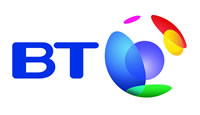 BT have been enjoying government payouts to maintain their networks.
BT have been enjoying government payouts to maintain their networks. Poor old BT. Now that it’s reached a settlement with OfCom that allows it to keep retail and wholesale arms under one, some would say, severely stretched umbrella, commentators emerge from cover and say it might be better if it’d spit into two (or more) parts. The cost of
Poor old BT. Now that it’s reached a settlement with OfCom that allows it to keep retail and wholesale arms under one, some would say, severely stretched umbrella, commentators emerge from cover and say it might be better if it’d spit into two (or more) parts. The cost of  The futuristic vision of a connected home with content moving seamlessly from our TV to our PC and on to our mobile device is still a long way off, according to key speakers at The Connected Home conference in London today.
The futuristic vision of a connected home with content moving seamlessly from our TV to our PC and on to our mobile device is still a long way off, according to key speakers at The Connected Home conference in London today. It took Dimitri Van Kets (pictured left), from Belgian telco, Belgacom, to voice what many were thinking by announcing that the networked home was “little more than a mass of standards” and “too confusing” for the average consumer. Unless the service providers get together and educate customers, he said, true home connectivity was never going to happen.
It took Dimitri Van Kets (pictured left), from Belgian telco, Belgacom, to voice what many were thinking by announcing that the networked home was “little more than a mass of standards” and “too confusing” for the average consumer. Unless the service providers get together and educate customers, he said, true home connectivity was never going to happen. Paul Szucs of Sony said that service providers should “try not to lose the plot with content protection”, adding that “consumers simply want their devices to work together and share content.”
Paul Szucs of Sony said that service providers should “try not to lose the plot with content protection”, adding that “consumers simply want their devices to work together and share content.”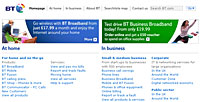 BT is planning to turbo-boost broadband connectivity by quadrupling basic connectivity speeds to 8mbps nationwide and giving the service a snappy name, “ADSL Broadband Max”.
BT is planning to turbo-boost broadband connectivity by quadrupling basic connectivity speeds to 8mbps nationwide and giving the service a snappy name, “ADSL Broadband Max”.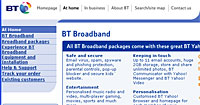 The 8mbps service will see BT reaching the theoretical top ADSL speeds it announced when the broadband service first launched in 2000.
The 8mbps service will see BT reaching the theoretical top ADSL speeds it announced when the broadband service first launched in 2000. With the industry rapidly consolidating, BT is coming under increasing pressure from newly merged uber-telecos like Telewest/NTL and Sky/Easynet, with the former already offering speeds of more than 8mbps for no extra charge on existing broadband subscriptions.
With the industry rapidly consolidating, BT is coming under increasing pressure from newly merged uber-telecos like Telewest/NTL and Sky/Easynet, with the former already offering speeds of more than 8mbps for no extra charge on existing broadband subscriptions. Elsewhere, BT has started trialling optical fibre broadband services in Wales, connecting business to ultra-high-bandwidth services using strands of blown fibre run along using existing telegraph poles.
Elsewhere, BT has started trialling optical fibre broadband services in Wales, connecting business to ultra-high-bandwidth services using strands of blown fibre run along using existing telegraph poles.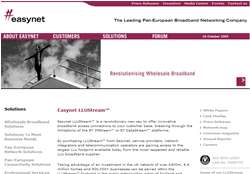 As we reported last week, Easynet has been bought by Sky – as long as they get shareholder approval, but since Sky have offered a premium on Easynet’s shares, this should be a done deal.
As we reported last week, Easynet has been bought by Sky – as long as they get shareholder approval, but since Sky have offered a premium on Easynet’s shares, this should be a done deal. Even though Sky are buying into LLU, Easynet only cover around 250 exchanges and currently all the voice goes to BT (Easynet use the shared metallic path LLU option), while Sky are likely to want to take the phone service as well (they already have a SkyTalk package using CPS provided by THUS). Sky will need to invest to make this a reality as well as increasing Easynet’s coverage. They have said they want to go into around 1000 exchanges, so that’s a build out of around 750 – which won’t be cheap (probably another £100m’ish at least).
Even though Sky are buying into LLU, Easynet only cover around 250 exchanges and currently all the voice goes to BT (Easynet use the shared metallic path LLU option), while Sky are likely to want to take the phone service as well (they already have a SkyTalk package using CPS provided by THUS). Sky will need to invest to make this a reality as well as increasing Easynet’s coverage. They have said they want to go into around 1000 exchanges, so that’s a build out of around 750 – which won’t be cheap (probably another £100m’ish at least). If all the LLU players aggregated infrastructure and competed on services, they could build a 21CN of their own now. LLU competition is going to be fiercely competitive with Wanadoo, AOL, Sky and even Be offering a triple-play – all competing for the same customers. – as well as BT (who will have nationwide coverage) and not ignoring NTL/Telewest who are also going into LLU.
If all the LLU players aggregated infrastructure and competed on services, they could build a 21CN of their own now. LLU competition is going to be fiercely competitive with Wanadoo, AOL, Sky and even Be offering a triple-play – all competing for the same customers. – as well as BT (who will have nationwide coverage) and not ignoring NTL/Telewest who are also going into LLU. Wi-Fly
Wi-Fly Is it a bird, is it a plane…
Is it a bird, is it a plane… Oooh Aaargh, ‘cos we’re pirates!
Oooh Aaargh, ‘cos we’re pirates!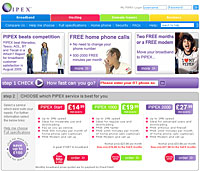 There still seems to be plenty of cash slopping around the broadband sector, as PIPEX has just waved its weighty wad in the direction of Freedom to Surf (F2S) and bought the company for £10m.
There still seems to be plenty of cash slopping around the broadband sector, as PIPEX has just waved its weighty wad in the direction of Freedom to Surf (F2S) and bought the company for £10m. It’s uncertain whether existing Freedom2Surf customers already using LLU via the EasyNet LLUStream range will stay where they are or be shunted on to a PIPEX LLU product.
It’s uncertain whether existing Freedom2Surf customers already using LLU via the EasyNet LLUStream range will stay where they are or be shunted on to a PIPEX LLU product. Peter Dubens, Chairman of PIPEX, said: “In the light of our recent decision to unbundle an initial 60 exchanges, we are very pleased to add F2S to the PIPEX group, which will further increase the density of customers around each exchange, thus improving the return on capital and enabling us to offer higher speeds to a greater number of our customers. F2S’s customers will be able to benefit from our extensive network and the broad range of services we provide.”
Peter Dubens, Chairman of PIPEX, said: “In the light of our recent decision to unbundle an initial 60 exchanges, we are very pleased to add F2S to the PIPEX group, which will further increase the density of customers around each exchange, thus improving the return on capital and enabling us to offer higher speeds to a greater number of our customers. F2S’s customers will be able to benefit from our extensive network and the broad range of services we provide.” Britain’s biggest cable operator, NTL, has agreed to shell out an eye-watering $6 billion (~£3.42bn, ~€5bn) for Telewest Global.
Britain’s biggest cable operator, NTL, has agreed to shell out an eye-watering $6 billion (~£3.42bn, ~€5bn) for Telewest Global.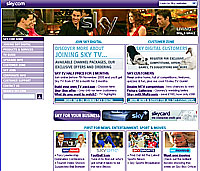 According to a statement – which ends three years of speculation about the merger – Simon Duffy, NTL’s chief executive, will lead the combined company.
According to a statement – which ends three years of speculation about the merger – Simon Duffy, NTL’s chief executive, will lead the combined company.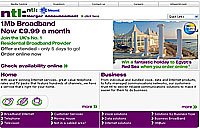 Chairman Cob Stenham can expect his bank balance to increase to the tune of $20m (~£11.4m, ~€16.77m) while chief executive Barry Ellison will no doubt cackle wildly with joy as $17m (~£9.7m, ~€14.25m) rolls into his coffers.
Chairman Cob Stenham can expect his bank balance to increase to the tune of $20m (~£11.4m, ~€16.77m) while chief executive Barry Ellison will no doubt cackle wildly with joy as $17m (~£9.7m, ~€14.25m) rolls into his coffers.